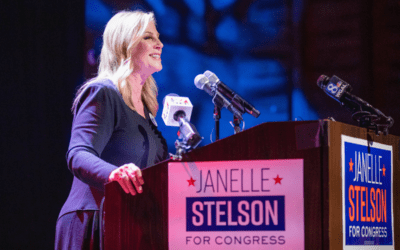
Image via Nappy.co
Meanwhile, enrollment via Healthcare.gov has increased 46% this year as millions lose their employer-sponsored insurance in the pandemic.
Millions of Americans at high risk for COVID-19 lack adequate health care to address even underlying conditions, let alone the virus that’s now killed more than 125,000 people in the U.S. Yet the Trump administration is continuing its quest to have the Supreme Court overturn the Affordable Care Act, though it has no detailed plan on what will replace the law if it is struck down.
On Thursday night at 10:30 p.m., the administration filed a legal briefing in support of the lawsuit to terminate the ACA—the brief made no mention of the virus. More than 20 million Americans could lose their health coverage, and protections for people with preexisting health conditions also would be put at risk if the court agrees with the administration.
President Trump has repeatedly called for “repealing and replacing” the landmark healthcare reform law.
But, as Health and Human Services Secretary Alex Azar told CNN’s State of the Union on Sunday, the law’s replacement won’t be decided until after the Supreme Court rules on the ACA’s legality.
“In terms of the Affordable Care Act,” Azar said, “we have made very clear that if the Supreme Court strikes down all or a large part of Obamacare because its constitutionally or statutorily infirm, we will work with Congress to create a program that genuinely protects individuals with pre-existing conditions.”
He added that “the exact details will be dependent on the—frankly, the composition of Congress if and when the Supreme Court does strike down all or a large part of Obamacare.”
Because the case won’t be heard until the fall, voters in November have no idea what the future of health care would look like under the Trump administration.
RELATED: The GOP Wants to Repeal the ACA During a Pandemic. Democrats Are Trying to Expand Coverage.
A study from Harvard Medical School and the City University of New York’s Hunter School published earlier this month found that 18.2 million people were either underinsured or uninsured when the coronavirus epidemic began to draw scrutiny earlier this year.
“Our study shows that minority communities face double jeopardy from COVID: on the one hand, they are at higher risk of severe complications from coronavirus, and on the other hand, they are more likely to be uninsured and underinsured, and hence to avoid care or to face potentially ruinous medical bills,” Dr. Adam Gaffney, the study’s lead author and a pulmonary and critical care physician, told Newsweek.
“Our dysfunctional health care financing is one important contributing factor behind pernicious racial health inequities in American society,” Gaffney added.
Public health agencies have seen a continual pattern of underfunding for decades at the federal, state, and local level, according to Trust for America’s Health, a nonpartisan public health advocacy organization. They were doubly hamstrung by the Trump administration’s mismanaged response to the pandemic. Misleading statements, slow federal assistance to states, testing delays, and questionable industry influence all slowed the implementation of a cohesive, national plan.
RELATED: A List of All the Ways the Trump Administration Failed Its COVID-19 Response
The number of at-risk Americans with inadequate coverage has grown substantially since the infections skyrocketed in mid-March, as record numbers of jobs and with it, health insurance, have gone away. Results of a Gallup survey released in late April found that tens of millions of Americans would avoid seeking treatment for COVID-19 symptoms, due to fiscal uncertainty.
Gaffney said the coronavirus pandemic “is laying bare the lethal inequality of American society and American healthcare.”
Neither congressional efforts to expand coverage during the pandemic nor temporary treatment fee waivers offered by private insurance companies seem to have addressed the issue adequately. Researchers are instead pushing for a more encompassing solution: an emergency expansion of Medicare to the uninsured. “It’s not just Covid care that’s unaffordable,” said Steffie Woolhandler, another of the study’s authors. “Patients with heart disease, asthma, and diabetes need protection too. Medicare for All is the long-term answer.”
The coronavirus pandemic “is laying bare the lethal inequality of American society and American healthcare.”
Last week’s Supreme Court brief filing from the White House came the same day the government reported that close to half a million people who lost their health insurance amid the economic shutdown to slow the spread of COVID-19 have gotten coverage through HealthCare.gov.
Thursday’s report from the Centers for Medicare and Medicaid Services showed that about 487,000 people signed up with HealthCare.gov after losing their workplace insurance this year. That’s an increase of 46% from the same time period last year.
It’s unclear from the government numbers how many of the new enrollees lost their coverage because of layoffs due to the pandemic. CMS also made no estimate of how many people will ultimately seek coverage through the Affordable Care Act as a result of economic shock waves. Generally there’s a 60-day window to apply after losing coverage.
However, the report found a clear connection. “While the magnitude may be unclear, job losses due to COVID-19 have led to increased enrollments on HealthCare.gov,” it said.
The Associated Press contributed to this report.

For Rep. Susan Wild, supporting PA families includes reproductive rights and much more
Rep. Susan Wild wants to be very clear with Pennsylvanians: Donald Trump is committed to taking away women’s reproductive freedom, but he is not...

School districts working with anti-LGBTQ groups can cost your kids’ schools millions
Parents across South Central Pennsylvania are worried about the potential financial impacts working with anti-LGBTQ groups may have on their school...

VIDEO: Trump distances himself from his anti-abortion views
Donald Trump appeared on WGAL on Tuesday and continued to distance himself from his anti-abortion views claiming that reproductive rights are now a...

VIDEO: Community pushback gets school board to rescind decision on denying gay actor’s visit
Cumberland Valley School Board offered a public apology and voted to reinstate Maulik Pancholy as a guest speaker a week after the board voted to...

VIDEO: Project 2025 brings nuclear armageddon back into vogue
Project 2025 is a titanic document, with plans ranging from cutting half of all government employees to targeting reproductive rights on a scale...




